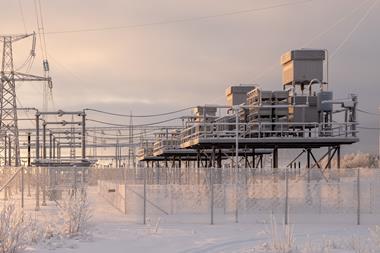The UK government has set out a five-year plan to spend £640bn (€733bn) on infrastructure in its Budget announcement today. The Chancellor of the Exchequer Rishi Sunak said he expected the money to be pumped into developments including telecommunications, roads, railways, schools and hospitals.
It would represent an almost unprecedented infrastructure spend across the UK, according to Joest Bunse, S&P Global Ratings’ associate director for EMEA infrastructure.
“But the measures are also commensurate with the challenges at hand, such as reducing regional disparities in the country’s infrastructure stock and decarbonising the economy,” he said.
“Never before have environmental and social considerations played such a prominent role in a UK Budget as it relates to infrastructure. This mirrors the shift we are observing in the investment community towards applying an ESG lens to capital allocation.”
Bunse said the Budget was as ambitious on infrastructure as it was bold, and it may “fundamentally change the way that we think about infrastructure delivery in the UK”, adding that it “implies that the government intends to honour existing PFI contracts, as we would have expected”.
Sunak also announced a £30bn fiscal stimulus programme to offset the negative economic effects of the spread of the Coronavirus.
Daryl Murphy, head of infrastructure at Aviva Investors, said: ”Today’s Budget was not surprisingly and rightfully focused on support to manage the impact of Coronavirus. However, infrastructure still featured strongly.
“The Chancellor announced £640bn of investment over the life of this Parliament into roads, railways, digital, schools, hospitals, housing and power networks. This was not unexpected given the pre-election announcements but it is positive to see this firmly stated as policy.
“The detail around infrastructure policy has been delayed until later in the year as we expect to see the National Infrastructure Strategy, The Energy White Paper and conclusions from consultation on matters such as the Infrastructure Finance Review, the RAB consultation for nuclear and the consultation on CCUS.
“The role of private investment within this generational change in infrastructure investment remains less clear but remains likely to be focused on energy transition as part of the pathway to net zero, digital investment in fibre and utilities.
“The challenge will remain how this infrastructure will be delivered given the scale of investment required, the status of the UK construction industry and availability of skills and labour. The government has made clear it wants to ‘get things done’ – infrastructure needs to move from rhetoric to reality.”
Giles Frost, director of International Public Partnerships, said the “focus on protecting households and businesses from the impact of coronavirus took precedence over infrastructure policy announcements and that’s quite right”.
Frost added: “The prioritisation of short-term stimulation of the national economy in response to Covid-19 was arguably at the cost of providing policy detail on how the UK government is going to procure the physical assets that will be paid for through record amounts of infrastructure spending.
“We are promised the detail in due course. For now, there remains a lack of clarity over the delivery methods – particularly in digital, road and rail infrastructure.
“We don’t know if the government will support a plurality of delivery models through both public and private sectors, and delaying the publication of the National Infrastructure Strategy risks further confusion as to the government’s real attitude to the private sector’s role in financing new infrastructure investment.”
Frost also countered suggestions that it was not a very ‘green budget’. “I disagree. There were a number of minor announcements that substantially reinforce the path for the UK’s transition to a low-carbon economy,” he said.
“This includes a more sophisticated approach to the carbon taxonomy and encouraging growth in electric vehicle adoption, heat decarbonisation and carbon capture and storage. In the year of COP26, I suspect this is only the beginning.”
Frost said the fact that there will be more demand in the system for electric vehicles and energy retrofitting is welcome news. “It certainly encourages private capital to continue to innovate new solutions to realise greener transport and social infrastructure,” he said.
UK infrastructure boost for real estate?
The government also announced plans to invest £12bn in building affordable housing. Nick Whitten, head of UK living research at JLL, said this was a welcome step in the right direction to enable new housing development.
“A lack of social infrastructure, such as sufficient schools, GP surgeries, roads and better public transport connections, is often cited as the blocker for new housing developments making it through the planning system,” he said. ”This fund should be the key to unlocking the door to building thousands of new homes across the UK.
“The additional funding for the Affordable Homes Programme is particularly welcome as part of the levelling up agenda and providing homes for those who need the most housing support.”
Simon Century, head of affordable housing at Legal & General Capital, said: “We welcome measures in the Budget today which look to tackle the chronic lack of affordable housing by increasing vital grant allocations and provide increased funding for rough sleeping initiatives. As with all things, of course, the devil will be in the detail.”
Melanie Leech, CEO of the British Property Federation, said: “We support the government’s ambitions to end homelessness and increase affordable housing, but the key to solving the challenge is to build more homes and overseas investment plays a key role in increasing housing supply across the country.”
She said the government’s announcement to introduce a 2% stamp-duty surcharge for foreign investors acquiring residential assets from next year ”must not make it more expensive for responsible, long-term investors to invest in and develop more much-needed homes around the UK”.
She added: “Communities wherever they are should expect housing development to be supported with excellent infrastructure. The new allocations of the Housing Infrastructure Fund are therefore welcome and we are pleased to see those spread around the country. It is particularly important that we recognise different land values across the country and support the provision of infrastructure where land value may not support planning contributions.”
James Thornton, CEO of Mayfair Capital, said regional cities that see improved transport and digital connectivity as a result of the increased infrastructure spend can be expected to experience stronger rates of rental growth than elsewhere and will be well placed to outperform.
“These policies are supportive of Mayfair Capital’s investment strategy, which has infrastructure as a key theme and favours regional investment.
“We also welcome the measures introduced to combat climate change – with £5.2bn allocated to flood defence and further measures to encourage changes in consumer behaviour.”
However, Thornton said, absent from the Budget was any mention of funding for social care, at a time when demographic change is putting pressure on the provision of care for the elderly.
“While the proposed increase on the national living wage is to be welcomed as a means of helping the low paid, in the absence of further funding for social care, a number of operators will be squeezed,” he said.
“With so many of these being owned by private equity, without reform, this could create a problem in the future.”


















